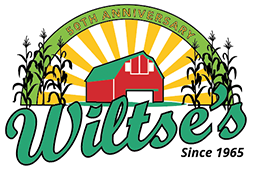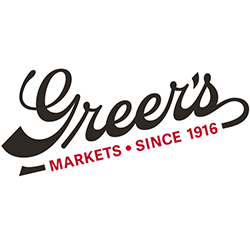In a fresh produce career that has spanned nearly 50 years, Cary Hoffman still finds passion for the action of fresh produce and the challenge of growing consumer demand for potatoes. For the past 25 years, that journey has included bringing niche potato varieties from Europe to the North American market. Hoffman, owner of MountainKing Potatoes and Schoenmann Produce, both based in Houston, was attracted to the “action” of the produce wholesaling when he first started his career in the early 1970s. He eventually invested in potato production in Colorado and became a fresh shipper, developing an affinity for specialty potato varieties, starting with the yukon gold and expanding to European varieties.
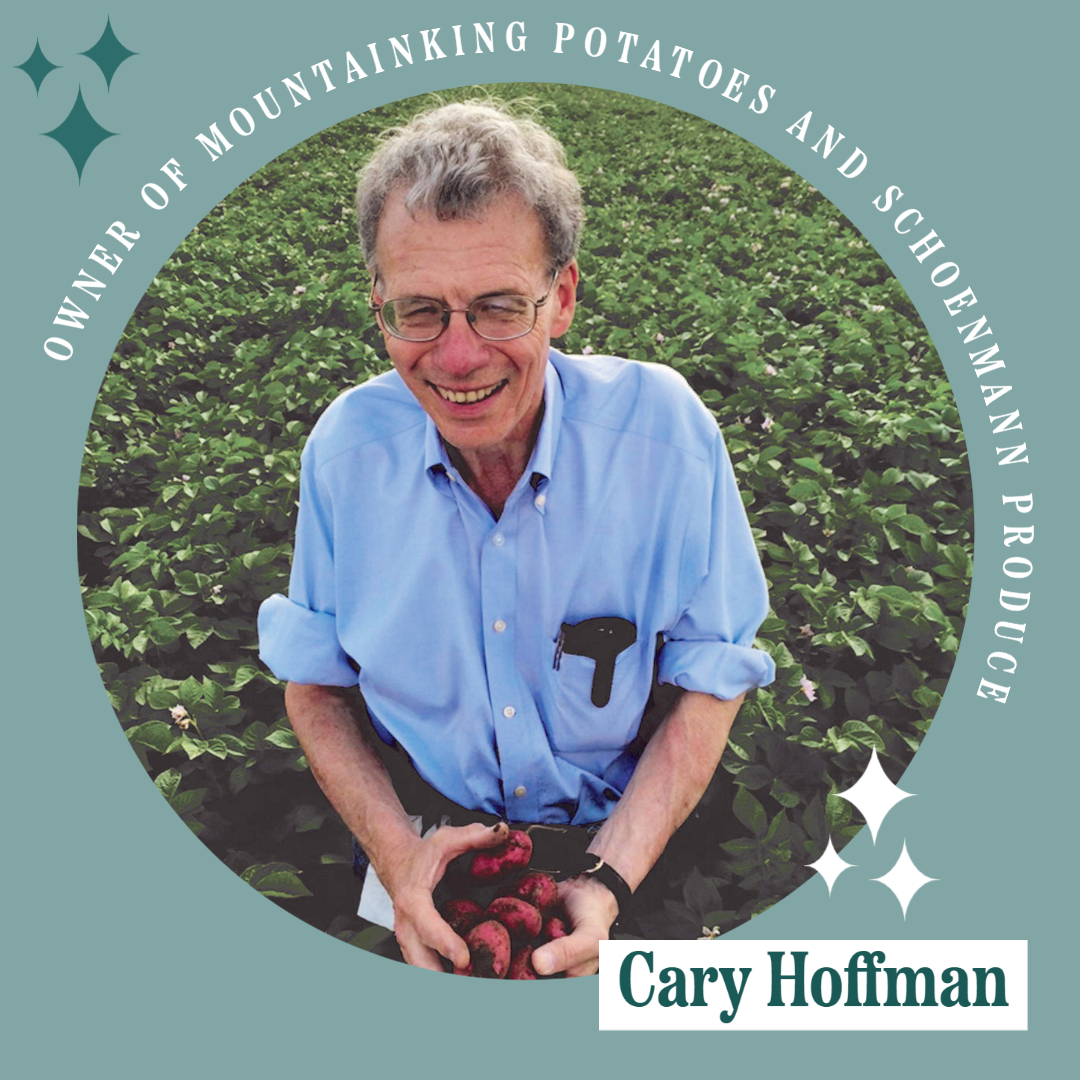
The Packer: Cary, good to visit with you today. Take us back to how you came to work in the produce industry.
Hoffman: My grandfather was from Russia. And (he) came to Texas, came in through Galveston and wound up in Waco, where my dad and my uncles grew up. They wound up in the wholesale produce business.
It came about from when my granddad came into the port of Galveston, he saw the banana ships unloading bananas. He started selling, peddling bananas in Galveston and wound up in Waco selling a full line of fresh fruits and vegetables. Back then, a full line of fresh fruits and vegetables is probably about 5% of what it is these days.
My dad and my uncles told all of us kids that we needed to go to college and get a good education, (so we would) not have to work so many hours in the produce business, as they had to do. I went to the University of Texas, wound up first with the bachelor's degree in business administration and later with a Master of Business Administration, and later on after that with a Ph.D.
I went to work for a company in Austin, where we worked with some of the professors who had contracts with the federal government to try to increase the economic development of some of the underdeveloped parts of the U.S.
I was working on a project here in Houston — still living in Austin, of course, but coming to Houston. I happened to see a wholesale produce business for sale.
I came to visit it, with no intent to buy it, but every intent to see what a wholesale produce business looked like there. The (wholesale business) we grew up with in Waco was not near the size of what the Houston (business) was.
I just loved the action. I came here and saw that, at four o'clock in the morning, the tractor trailers were pulling in, the trucks were pulling out, there were people all over the place.
I loved it; it was just fantastic.
I mentioned it to my father, and he told me to stay out of the produce business, but I wound up in it.
I hired somebody to run it; that lasted a week and a half. And I came (to Houston) until I could find somebody else. I tried to find somebody to work here after this fellow left, but I wound up, just as I say, enjoying the action.
So, I'm still here and that was back in 1973. We can figure out how long ago that was but it's a long time.
The Packer: What came next for you after you bought the wholesale business?
Hoffman: We wound up, starting in 1982, growing potatoes in the San Luis Valley in Colorado. After Idaho, as far as fresh potatoes are concerned, Colorado is the second largest supplier of fresh potatoes in the U.S.
What we started to notice back in the late 1980s and early 1990s, at our wholesale produce business in Houston, some of the restaurants were we selling to started asking us for yukon gold potatoes. We were used to selling russet potatoes, we were used to selling red potatoes, and we were used to selling white potatoes. We had heard about yukon gold potatoes but never got involved with any until some of our foodservice customers, some of the more established restaurants, asked us to see if we (could) find some for them.
We found some off the Los Angeles produce market. We started with 10 cartons a week and it got to be 20 cartons per week.
And within about a year and a half, we could not supply the amount of 50-pound cartons of yukon gold potatoes our customers here in Houston wanted to purchase. We just couldn't. California didn't grow that many.
I asked one of the growers in the San Luis Valley in Colorado if he could get us some seed for yukon gold potatoes so we could see if they would grow in Colorado. And after some time, he found enough for us to plant about 60 acres.
We had no idea if they would work in Colorado. But what is the old saying, “You don't know if you don't try.”
So, we tried 60 acres, harvested them and wound up with more yukon gold potatoes than probably the whole country had produced.
We didn't know what to do with them. Because while we were servicing and selling a lot (to) restaurants that buy yukon gold potatoes, that wasn't anywhere near as many as what those 60 acres produced.
And that was about the same time that Kroger was moving here (Houston). I think they bought out a small grocery chain here. And back then for Kroger divisions, particularly as far as fresh fruits and vegetables were concerned, (purchasing decisions) were done by the folks who were working in that particular branch of Kroger. Here it was Houston, and I went to the head of produce and introduced myself. I took a few yukon gold potatoes with me and I said, “I know you're from Los Angeles, and you know they grow yukon gold potatoes in California.” I said, “Would you be interested in Kroger selling some of these and seeing how they do here?” He says, “Would you make Kroger have an exclusive for three months before you sell to anybody else?'” and I said, sure.
Right after that we had every yukon gold potato that we had grown, and they all went to Kroger except what we had to hold back for the other restaurants.
And so that next year, we grew a few more yukon golds and over the years, we increased the acreage of gold potatoes.
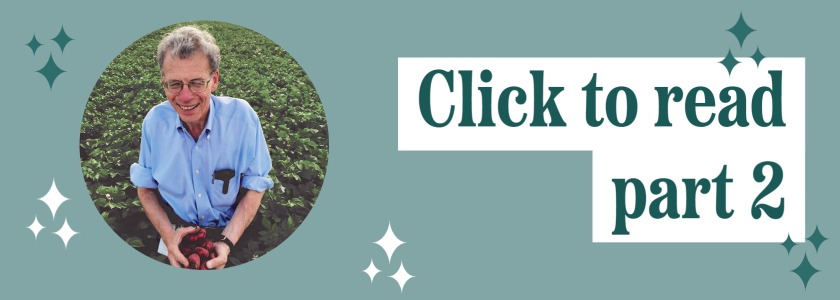


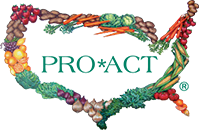
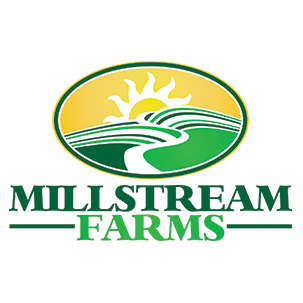
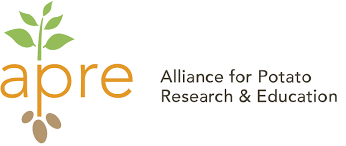
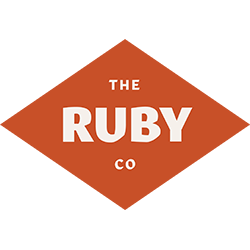
.png)
